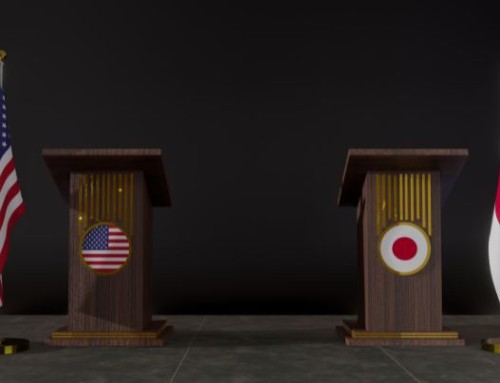Defining a year with a single word defies logic and common sense. Yet, in many ways, 2017 was a year defined by the word outrage that crossed political, economic, social, cultural and emotional boundaries in the United States. The source of much of this outrage was fear of the future. Fear unleashed anger. And anger became outrage.
Diminishing standards of living; wage stagnation; the skyrocketing costs of health care and education; and the increasing gaps between rich and poor were grounds for fear of the future. In this highly polarized, divisive and entirely partisan political environment, for many Americans, the target for this outrage was failed and failing government.
Cleaning up “the swamp” in Washington became a metaphor for this resentment against govenment and one reason why Donald Trump was elected president. His first eleven months in office were marked by this partisan outrage that is still growing. And presidential tweets, many coarse and crude, were accelerants to fueling outrage.
Democrats were outraged that while Hillary Clinton won the popular vote, she lost the vital electoral college. Further, the president’s continued use of incendiary language calling Mrs. Clinton “Lyin’ Hillary,” and Senator Elizabeth Warren “Pocahontas” inflamed Democrats. And Trump’s commitment to undo President Barack Obama’s legacies and programs provoked long-term animosity that has not abated.
Republicans were outraged by the refusal of Democrats to accept the election results. Indeed, the subsequent investigation over Russian involvement and interference in the elections was seen as an attempt to de-legitimize the president’s victory. The end of bipartisanship in Congress was blamed on the Democrats refusal to work across the aisle. Most votes followed party lines.
The president’s truculence in not condemning or confronting Russia and Vladimir Putin drew outrage from both Republicans and Democrats. Even his National Security Strategy released before Christmas was highly crticized for failing to place any priority on advancing democracy, human rights and Western values. And of course his twitter war of words with North Korea and Kim (Little Rocket Man) Jung Un promoted outrage on both side of the 38th parallel dividing the two Koreas.
Perhaps nowhere was outrage more strongly expressed than in the “@me too” movement over sexual harassment. While the president and losing Arkansas senatorial candidate Roy Moore vehemently denied all charges of sexual harassment, beginning with the undoing of Fox News heavyweights Roger Ailes and Bill O’Reilly earlier this year, a veritable tidal wave of outrage consumed a litany of famous celebrities and members of Congress. This movement is far from over.
The combination of outrage at home has been matched abroad. In international politics, the president’s initial refusal to embrace Article 5, the centerpiece for NATO’s security; withdrawal from the Trans-Pacific Partnership and the Paris Climate Accord; and failure to certify the Joint Comprehensive Plan of Action (JCPOA) to prevent Iran from obraining nuclear weapons were regarded as an American global retreat ending seven decades of Washington’s leadership.
BREXIT was a measure of Britons’ dislike of being bound to bureaucrats in Brussels. The wave of right wing leaning governments coming to power in Europe likewise reflects public rejection of liberal Western norms. The president’s recognition of Jerusalem has sparked outrage in the region; in the UN against this action; and in a large majority of the Muslim and Arab worlds.
The obvious solution to tempering outrage in American politics is beyond any chance of obtaining it. Govenment must be seen as working for the people. But the unspannable gap of polarized politics makes bipartisanship, civility and compromise impossible.
Closing this gap can only by accomplished in the short term by presidential leadership. Because President Trump’s theory of governing rests in maintaing his base of about 1/3 of the electorate whose fear of the future and disdain of government are prime motivations, no incentive exists to change this philosphy. The conclusion is as predictable as are continued presidential tweets.
As much as outrage dominated 2017, 2018 might even be worse. Few bright spots dot the near horizon. The Tax Law may keep the economy viable for the short-term. China may become more responsible towards North Korea. And riots in Iran may force the Imams to listen. But do not count on any of that.
The good news is that for Americans, no existential dangers threaten us. The bad news is also clear. We know a major cause of this outrage. But will that matter?
______________________________ ______________________________ _____
Dr. Harlan Ullman has Served on the Senior Advisory Group for Supreme Allied Commander Europe (2004-2016) and is currently Senior Advisor at Washington D.C.’s Atlantic Council, chairman of two private companies and principal author of the doctrine of shock and awe. A former naval person, he commanded a destroyer in the Persian Gulf and led over 150 missions and operations in Vietnam as a Swift Boat skipper. His latest book is Anatomy of Failure: Why America Has Lost Every War It Starts. The writer can be reached on Twitter @harlankullman.






Comenteaza